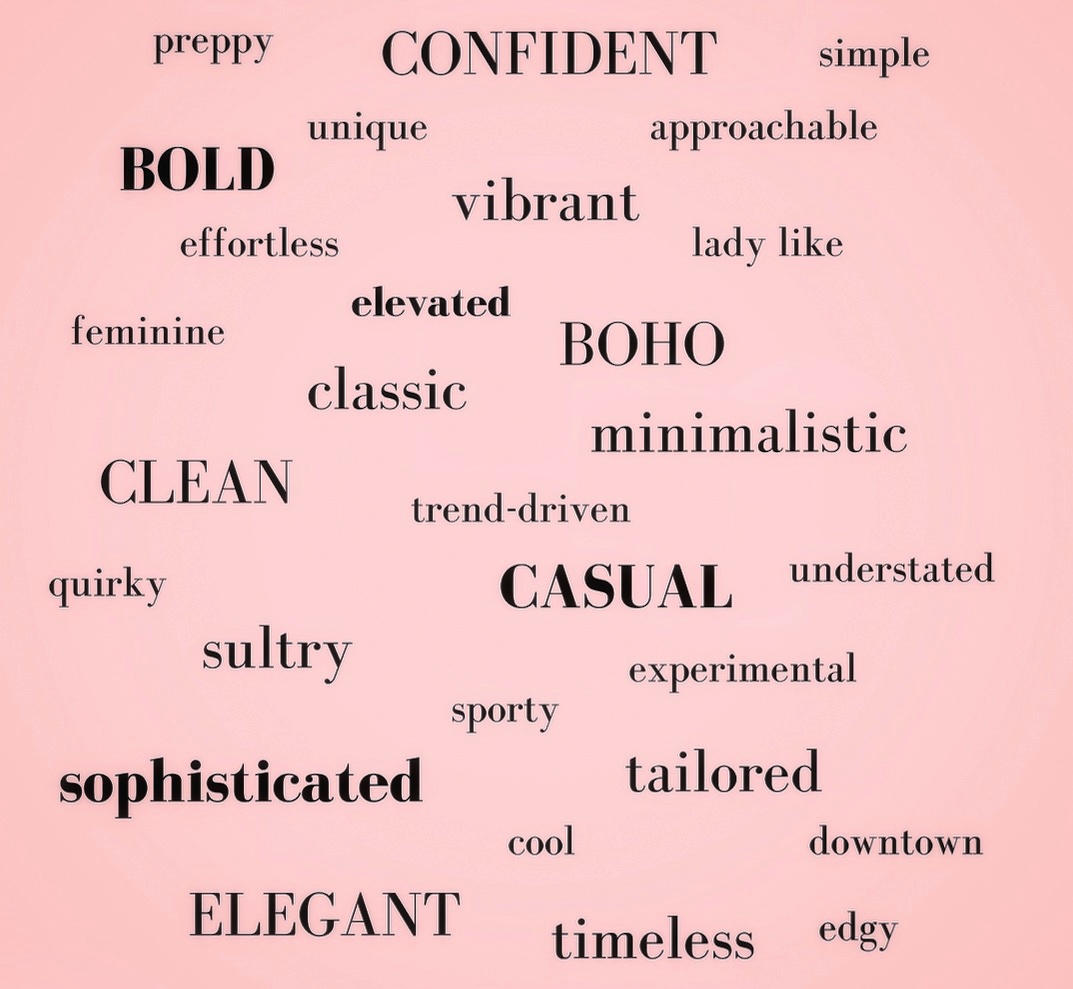- December 14, 2020
- FASHION + SHOPPING
Five Fashion Insiders Redefine Fashion’s Favourite Words
Time to refreshen up our fashion jargon!

Every one of us has our own individualistic connection with fashion, even if one may not acknowledge it. You know, some may say that we are not that into fashion, but we all know that you did end up getting that kaftan and sweatsuit this year. To put it simply, our fashion connection is directly proportional to our everyday interaction with the clothes and our insatiable fascination for what’s new. While dressing-up happens to be a very personal experience, social media has played a critical role in fueling that fascination for newness over the past few years. And this, in return, has affected the shelf-life of content, besides fashion’s already existing production/consumption issues. Thereby, we just are left with short-lived images and videos and words that have lost resonance and essence due to overuse and abuse.
Like, social media depicts cool as having the latest IT bag, wearing the newest drop, and hanging out with a particular crowd. But that isn’t what being cool really implies. Rather, it means being your authentic self and owning up to what differentiates you from others. It means talking about views and ideas, not other people. It means being comfortable in your own company, instead of seeking external validation to feel good. Most importantly, cool is to be compassionate, kind, understanding, and humble with a side of mystique.
With the fashion world all focused on reforming its essential ideals for the present and the future, we decided to shed that reformation light on fashion’s favourite words as well. And we have five of the most distinguished voices in Indian fashion to help decode the essence of the words they feel have been overused and abused in this high-frequency digital age.
P.S. Everything isn’t and can’t be edgy always.
FLATTERING By Vinita Makhija (Fashion Stylist + Visual Strategist)
“The Guardian wrote a fantastic piece on the word ‘flattering’. You’ll hear this word often in the style advice section (especially from people who don’t have experience dressing plus-size women) or store consultants that use this word interchangeably with skinnier or thinner. What does flattering mean anyway in a post-modern world where individuality is the biggest selling point. Everyone wants a signature style, regardless of the trends of the season. I think it’s important to instill in women, especially younger ones, that they can choose to wear what they want to, based on their confidence/comfort level and not size. Beyond that, of course, it’s a personal choice. And also, words are not bad inherently; it’s how we use them.”
FASHIONISTA By Archana Jain (Managing Director & CEO – PR Pundit)\
“Initially described as someone always styled in the latest collections is now sadly been used and abused, and conjures visions of bodycon-dressed women only – hardly the fashionista of yore! It’s time to shed this word with a more contemporary term.”
SUSTAINABLE by Amrita Singh (Features Editor)
“Where sustainability within the fashion industry is extremely important, the term “sustainable” itself isn’t the one that the general population is entirely familiar with. It’s impossible to imagine that internationally renowned fashion brands can ever really be wholly ethical or sustainable – especially when they produce such vast quantities. And as consumers, we know nothing about how the fabric was produced, in what conditions the item was made, and what environmental assets were used/destroyed to create the garments. Moreover, since it’s such a brilliant marketing tool for brands, lately, fast-fashion/high-street retailers have started tagging things as “conscious” and “green” to hint at an eco-friendly presence on this earth – which, let’s face it, is nonsense, but fast-fashion retailers are getting away with greenwashing very easily.
The “trend” has bled into social media where we have “influencers” who aren’t seen in a whole outfit more than once and are all of a sudden talking about “sustainability”! It has everything to do with the current cultural status quo: a humongous appetite for social media “love”, an innate desire for instant gratification, and the newest trend. Truly sustainable concepts are from brands that are small, independent, and specialize in an artisanal quality.
So, to be able to shop with a conscious, let’s all jump off the “sustainable” bandwagon and do away with the word, and instead, embrace the concept of mindful consumption that is carefully consider each piece you buy, regardless of price, and wear it to death! Don’t you know? It’s chic to repeat.”
NORMCORE By Divyaa Kapoor (Brand Futurist & Foresight Strategist)
‘Normcore’ (Normal + Hardcore) happened to be one of those ambiguous 21st-century terms that were bandied around a lot for some years while rarely being truly defined. Normcore is a mood. It’s an attitude. But in many subcultures, embracing normcore was perceived as a way of appearing mainstream. It introduced wearing normal clothing like a costume, to make an understatement. Whereas, normcore aesthetics is much like dressing in childhood; innocent and authentic. It’s far less complicated or steeped in nuanced meaning. Essentially, to be truly ‘normcore’, you need to understand that there’s no such thing as normal. In foresight, embracing the normcore philosophy will grant us the freedom to radically realign our relationship with the outside world, as it symbolizes that being adaptable is the only thing that will set us free.
CANCELLED By Shruti Thacker (Digital Content Strategist & Editor)
“Of late, there has been a tendency in fashion to cancel people and brands. While it’s great that we can call out issues and practices that are wrong, canceling someone has a very middle-school bully approach. And in 2020, we don’t need that kind of negativity (don’t we have enough going on?). Let’s give people a second chance and champion their growth instead.”
GIFs Courtesy: GIPHY
Karishma is a science nerd turned fashion and beauty writer who loves talking about trends as much as eating desserts. Gucci, salted caramel ice-cream, jewels, and Simba (her dog) make up four chambers of her heart. Like Karishma’s story? Drop her a line in the comments section below.






